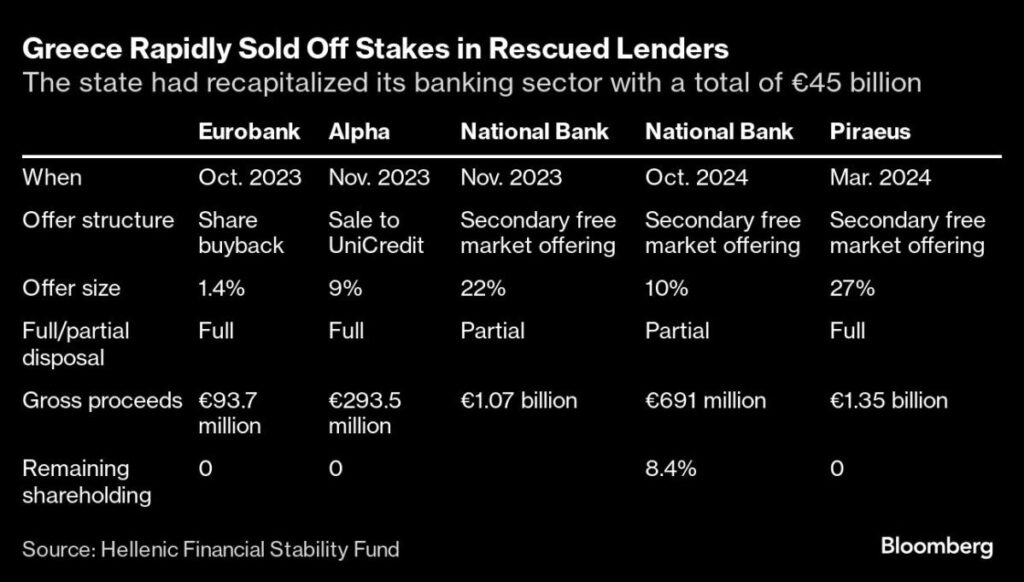Countries like Greece, Ireland, and the UK are selling stakes in banks to fill budget gaps and take advantage of high valuations.
Europe’s bank bailout era is drawing to a close as governments across the continent move to sell stakes acquired during the 2008 financial crisis. These bailouts were necessary at the time to stabilize the banking sector and prevent broader economic collapse. Now, with banks’ valuations having surged, governments are taking the opportunity to divest these stakes, seeking to raise capital to address their own fiscal challenges.
Greece stands out in this process, but it isn’t the only country taking such actions. Across Europe, countries like Ireland, Italy, the UK, and Germany are following a similar path. Many of these nations had provided massive financial support to their banks during the crisis, leading to partial state ownership. The rebound in the banking sector, driven by a combination of economic recovery and higher interest rates in recent years, has significantly boosted the value of these banks.

Governments are eager to capitalize on these higher valuations while they last. By selling their stakes, they aim to shore up their budgets, which have been strained by the COVID-19 pandemic and other economic pressures. This timing is also crucial as interest rates are expected to fall in the near future. Lower rates could squeeze banks’ profitability, reducing their market value. As such, governments see this as a window of opportunity to maximize returns on their investments.
One of the main concerns is whether banks can maintain stability and profitability without state backing. Governments are now betting that the banking sector is strong enough to stand on its own in the post-crisis world. However, the process of selling state-owned stakes also signals a return to market discipline, where banks will need to prove their ability to navigate future economic uncertainties without government intervention.
The sale of these stakes marks the end of an era in which the state played a pivotal role in supporting and managing the European banking system. The long-term success of these sales will depend on the banks’ ability to adapt to changing economic conditions, such as shifts in interest rates, inflation, and consumer demand. As governments exit, investors are watching closely to see how banks perform in the years ahead.
While the bailout era might be coming to an end, the effects of the financial crisis continue to shape Europe’s banking landscape. The future will test whether these institutions have truly recovered or if they remain vulnerable to new risks.




